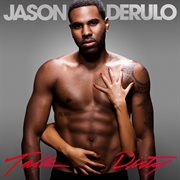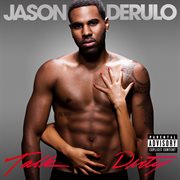Review by Booklist Review
Komunyakaa, a much-awarded poet treasured for his jazzy inventiveness, empathy, and the resonance of his language, has written a remarkable set of 132 four-quatrain poems that erase the distinctions between nature, humanity, and the divine, and meld the past with the present. Life in all its spectacular variations inspires quirky ruminations on such earthy creatures as slime molds and hyenas, and such mythological beings as the centaur and Janus, the two-faced god. A priapic romp around an ancient Greek vase and a rollerblader grabbing a bumper of a Yellow Cab to glide through Central Park ignite Komunyakaa's imagination with equal force, just as banged-up objects in a junk shop speak as eloquently as a skull extracted from a violated tomb. Insects go about their business as they always have, and so do we, the poet observes, in spite of permutations in spiritual beliefs and technology. Like our ancestors, we suffer for love, look for cures, and torment each other, trying to forget that the maggot awaits, patient and voracious. --Donna Seaman
From Booklist, Copyright (c) American Library Association. Used with permission.
Review by Publisher's Weekly Review
Komunyakaa's bodily frankness, his appealingly clipped rhythms and his darting intelligence all remain on display in his 11th book of poetry, a serious but always entertaining tour de force. All the poems take the same external form: four unrhymed quatrains each, in syncopated four-beat lines. These four by four by four-or-so verbal performances stick together to form an oblique and psychologically intricate antihistory of the human world, from Homo erectus to MTV. The poems keep up particular interests in sculpture; craft objects, from thumbscrews to valentines; sex; insects; and classical and comparative mythography. Polyphemus the Cyclops, Godzilla the movie, a full bill of Greek gods and ancient personages, the Renaissance artist Pollaiuolo, Rodin, W.E.B. DuBois, the minor Modernist martyr Harry Crosby, and (as Komunyakaa's devotees might expect) a team of jazz musicians stand among the large cast of characters. The star of most poems, though, is Komunyakaa as commentator, bringing his off-kilter attitudes and his considerable experience to bear wherever his focus falls. He tells a centaur how "Unholy/ Need & desire divide the season,/ As you eat sugar from a nymph's palm,/ Before she mounts & rides you into a man." The Venus of Willendorf displays "two fat gladiolus bulbs," "a hunk of limestone/ Shaped into a blues singer." Bedazzled by clashing consonants, "The Ides of March" asks "Which oak rafter/ Did this wasp nest cling to?" One of Darwin's finches "prances like God's little/ Torquemada on the highest rotten branch." A folk healer explains "I can't think ugly/ Since I deal in cosmic stuff." And Komunyakaa's "Castrato" asks himself "how to stop women/ From crying when I open my mouth." Scattered throughout the work are seven poems about, or anyway named for, the seven deadly sins ("Sloth" turns out to describe the animal). Komunyakaa (Dien Cai Dau; Thieves of Paradise), who teaches at Princeton, garnered a Pulitzer Prize in 1994 with Neon Vernacular; since then he's managed to stay both hip and difficult, oblique in his meanings and populist in his sounds. His latest work, which finds him jumping from longtime publisher Wesleyan to FSG, may be some of his best, and most various: it certainly will keep his readers on their toes. (Sept.) (c) Copyright PWxyz, LLC. All rights reserved
(c) Copyright PWxyz, LLC. All rights reserved
Review by Library Journal Review
Prize winner Komunyakaa attempts to filter a wide range of subjects through a single poetic form, lyric meditations built from four quatrains with individual lines of three to four stresses. Most showcase the wry, lightly acidic wit tinged with surrealism that has become his trademark, whether revealed in the monolog of a castrato ("I wish I knew how to stop women/ From crying when I open my mouth") or in the postmortem thoughts of Sylvia Plath ("I never wanted to be famous,/ But couldn't lift my head off/ The oven door"). Though ambitious, working in this constrained form over the course of 132 poems, creates pressure for terse resolution in the final quatrain, thus producing a number of stress fractures: poems that appear to end "in medias res" or that rush to hasty conclusions. The many Classical allusions and a relatively flat diction recall English editions of The Greek Anthology, and whether or not the effect is conscious, the poems often seem like translations: reserved, dispassionate, a little too careful. There are many virtues here, but they are best enjoyed in small doses.DFred Muratori, Cornell Univ. Lib., Ithaca, NY (c) Copyright 2010. Library Journals LLC, a wholly owned subsidiary of Media Source, Inc. No redistribution permitted.
(c) Copyright Library Journals LLC, a wholly owned subsidiary of Media Source, Inc. No redistribution permitted.
Review by Kirkus Book Review
Komunyakaa, although known for his wide-ranging experiments in open and closed verse forms, restricts his field here to a long cycle of verses of four quatrains each. Such a structure, even in the hands of a master, can become monotonous, but Komunyakaa pulls it off, expertly varying the prosody to achieve a fluid, fresh movement among ideas and rhythms. In keeping with his title, Komunyakaa sets out to create what amounts to a book-length meditation on the undersides of myth: sin, sex, putrefaction, stupidity, violence. The book hangs grinning between the titles of its first and last poems, "Hearsay" and "Heresy." As one of the oldest forms of lyric, the quatrain is thus a deliberate choice; the poet exploits its archaic power, balancing mythological sonorities with modern discoveries. Komunyakaa isn't afraid of poking a little fun at his own vast knowledge of Greek and Roman myth in the process. "Phocylides of Miletus," for example, begins: "Phocylides said this also: Please / Come back to bed, Love. / I didn't mean to blab / On & on, to bring into the bedroom those wormy / Epigrams." The best poems leave specific mythological references behind for a new myth woven out of contemporary horrors, as in "The God of Land Mines": "His face is a mouthless smile. / He can't stop loving steel. / He's oblong and smooth as a watermelon. / The contracts have already been signed. / Lately, he feels like seeds in a jar, / Swollen with something missing." Here Komunyakaa comes across as a poet of both the small and the grand, a visionary who considers Eros and maggots with equal insight.
Copyright (c) Kirkus Reviews, used with permission.



